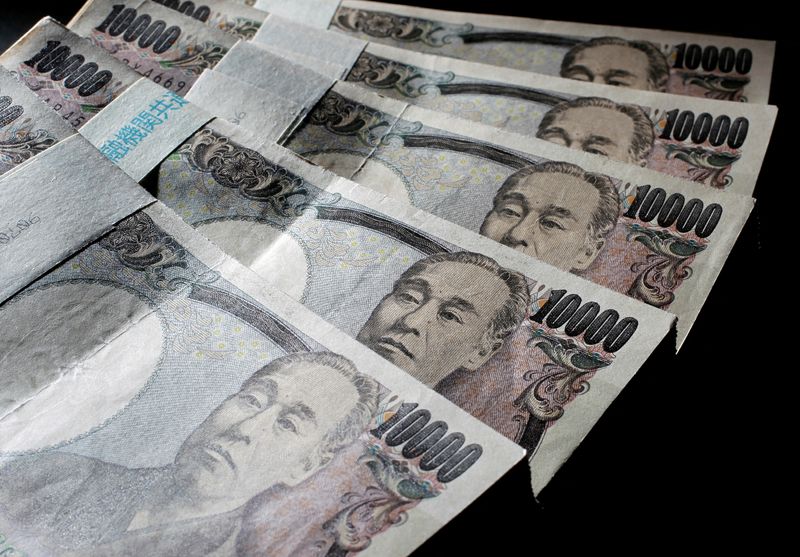By Tetsushi Kajimoto and Takaya Yamaguchi
TOKYO (Reuters) -Japan spent nearly 30 trillion yen less in the last fiscal year than it had planned for a second year running, which analysts said raises questions about whether stimulus measures like those adopted during COVID-19 could be implemented more efficiently.
The Ministry of Finance said on Tuesday there was an excess of some 22.4 trillion yen ($161.41 billion) in the budget for fiscal year 2021, which ended in March, mostly unspent pandemic support funds. A further 6.3 trillion yen ended up being "unneeded" according to figures calculated by the ministry as it settles the accounts for FY2021.
The excess came on top of some 30 trillion yen that was carried over from the previous fiscal year, ended March 2021.
The figures could offer lessons for the future around effective implementation of heavy fiscal stimulus, some analysts said. Unspent funds included money earmarked for public works, subsidies to restaurants and funding to revive business activity.
"It's not the size of stimulus that matters, but the question is how it should be implemented more efficiently," said Takuya Hoshino, senior economist at Dai-ichi Life Research Institute.
"The public-sector staff as well as those in the private sector tend to be overwhelmed by cumbersome process that involves subsidies and other administrative applications."
Japan makes it a rule that the budget for a given year should be used up by the end of the same fiscal year.
Top lawmakers are still expected to call for large fiscal stimulus ahead of upper house elections on July 10, and as authorities focus on reviving an economy struggling to mount a strong recovery from the COVID hit and global supply chain woes.
Overall net surplus amounted to 1.38 trillion yen, ministry officials said, half of which can be used for funding the cost of any extra budget for the current fiscal year.
For fiscal year 2021, Japan had planned to spend over 142 trillion yen. The record 6.3 trillion yen deemed unnecessary included corporate funding and tourism discount campaign.
Fiscal 2021 tax revenue was seen revised up to 67.0 trillion yen, up 3.2 trillion yen from earlier estimates and a record amount for a second straight year.
"Global recovery and weak yen bolstered corporate profits, gradual improvement in wages and jobs underpinned income tax, and firm consumption and rising fuel imports pushed up sales tax receipt," a ministry official said.

Larger than expected tax revenue has allowed the government to reduce bond sales by 8 trillion yen out of planned issuance of 65.7 trillion yen for the fiscal 2021, they said.
($1 = 136.3000 yen)